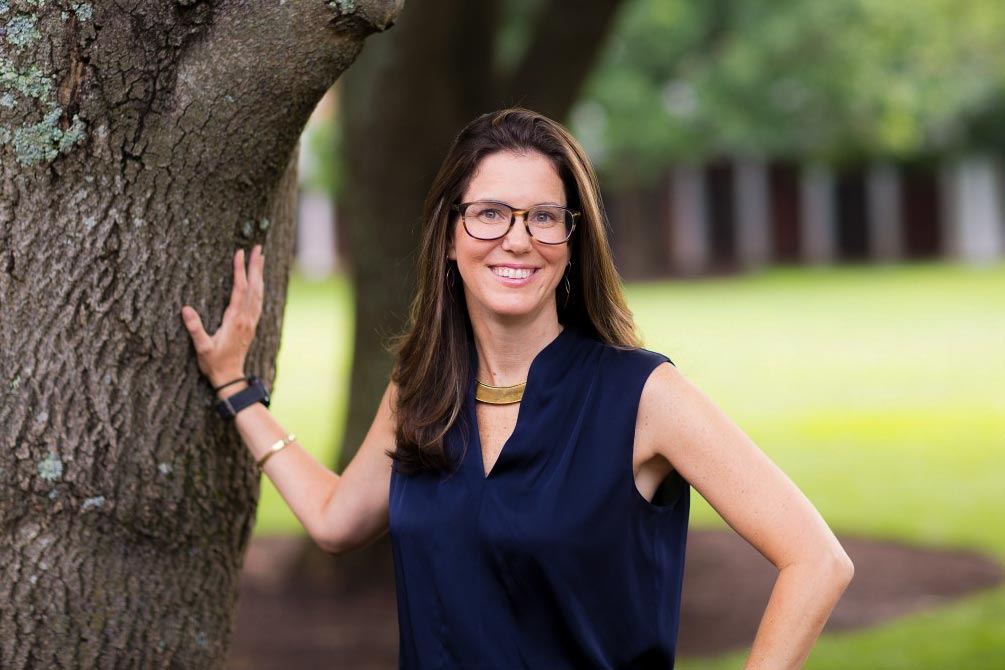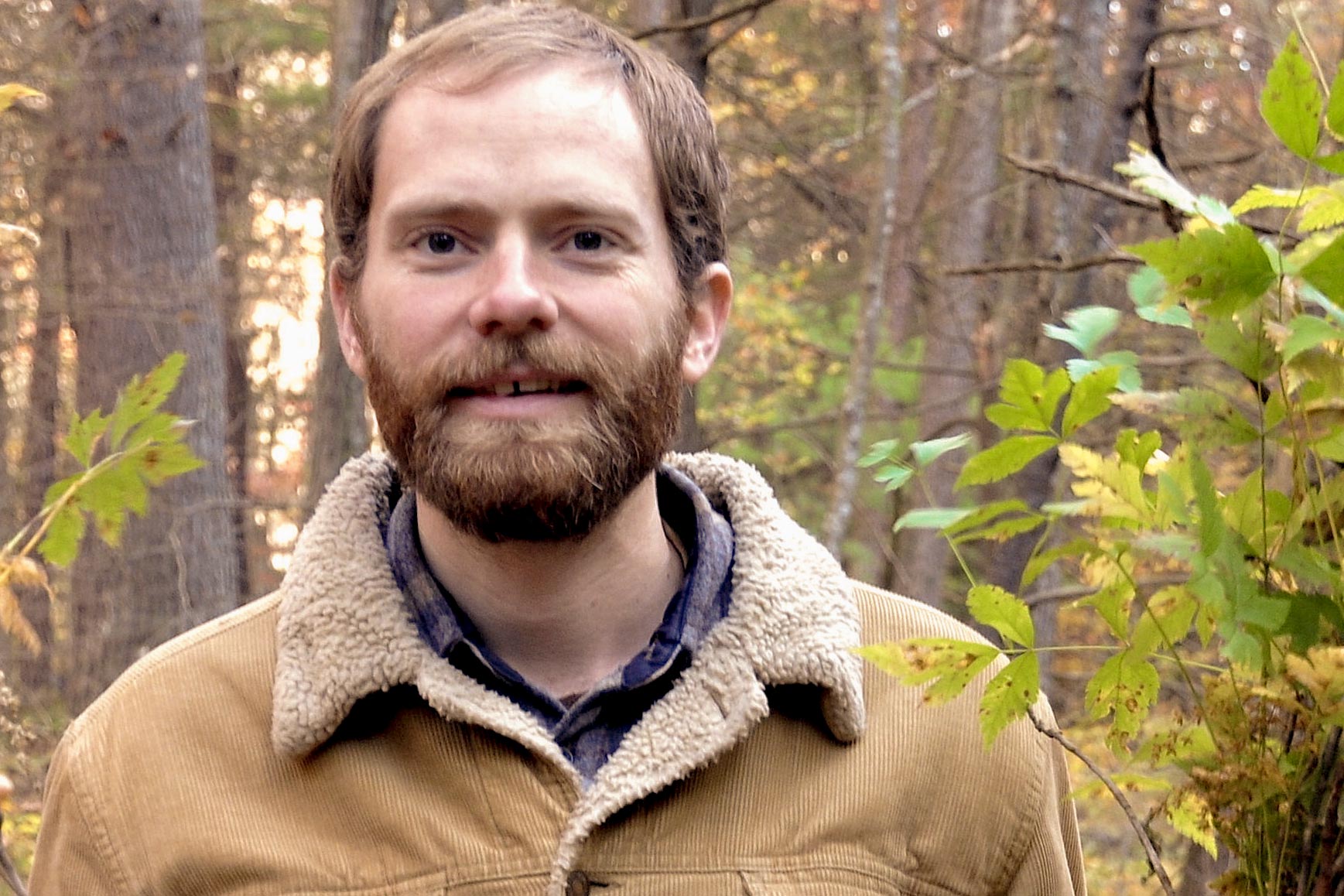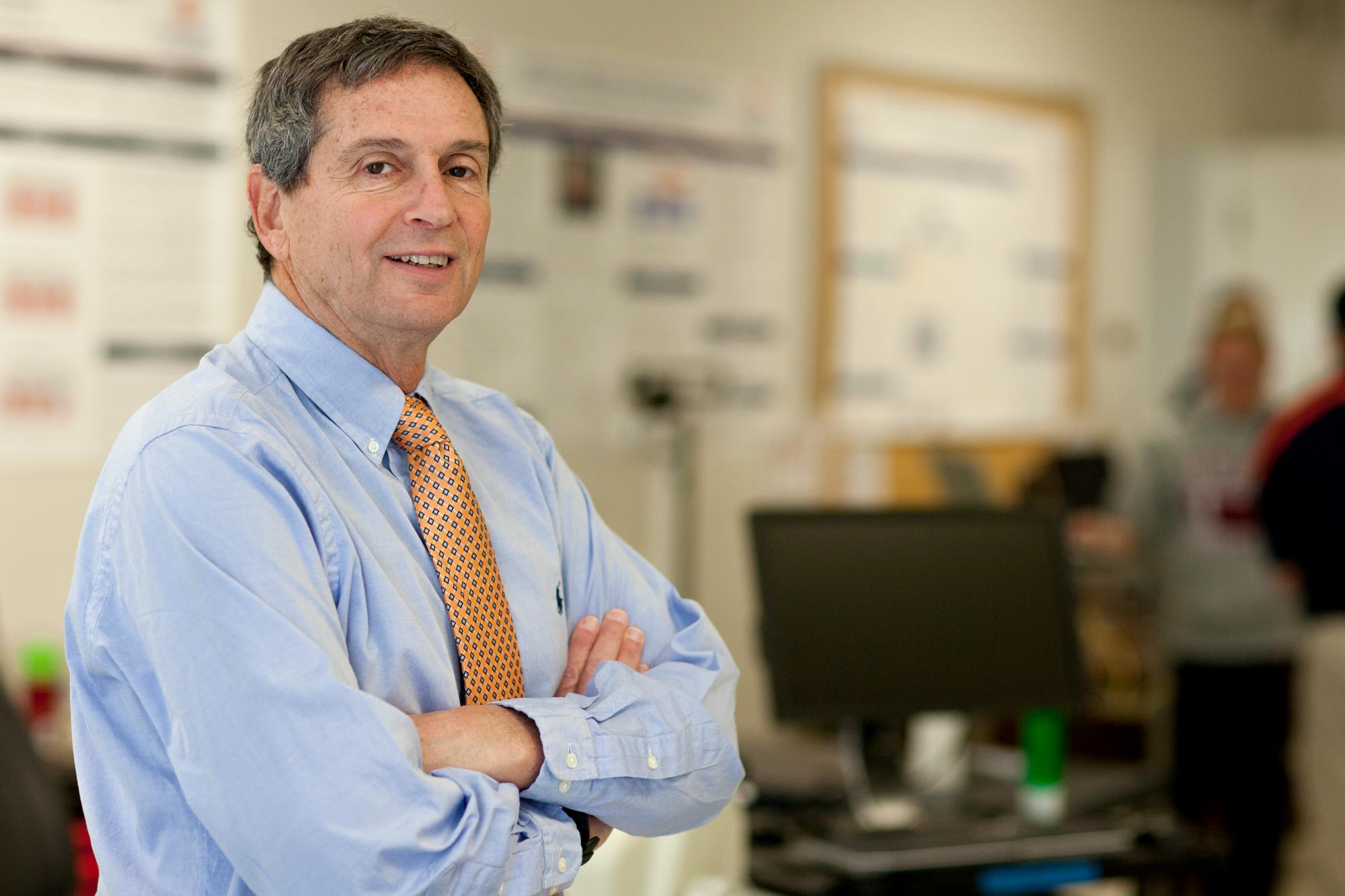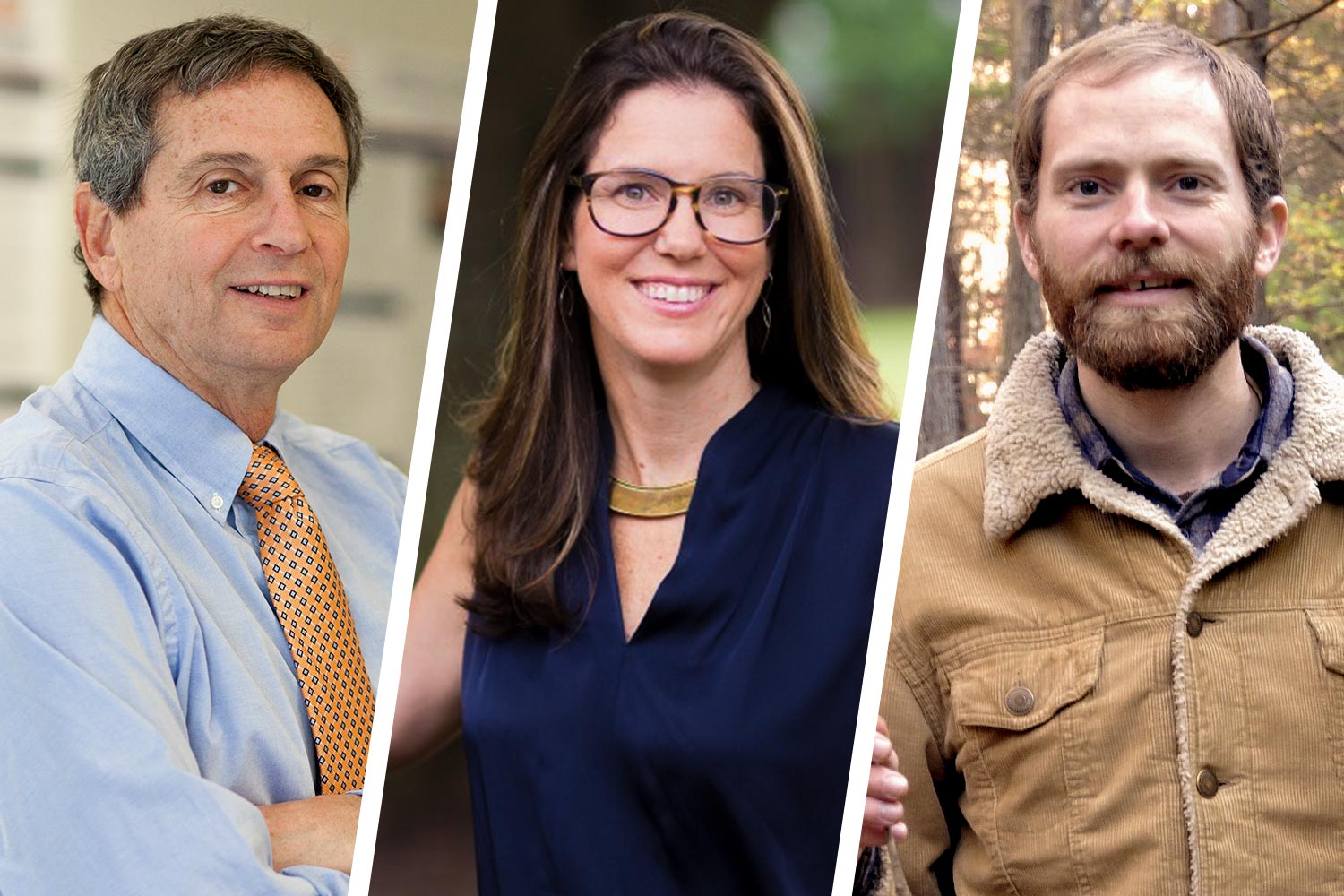The three University of Virginia professors named 2020 Outstanding Faculty Award winners Friday by the State Council of Higher Education for Virginia push the boundaries of the typical classroom and of their academic disciplines, employing hands-on experiences for students and conducting game-changing scholarship to aid humanity.
Arthur Weltman, professor and founding chair of the Department of Kinesiology in the Curry School of Education and Human Development, also holds UVA’s 2019-21 Cavaliers’ Distinguished Teaching Professorship. Kirsten Gelsdorf, a professor of practice in the Frank Batten School of Leadership and Public Policy, came to UVA after working for the United Nations for two decades. Ryan Huish, an associate professor of biology at UVA’s College at Wise, takes students of all ages outside, making the surrounding natural world their classroom and market.
Since 1987, the SCHEV awards have recognized faculty at Virginia’s institutions of higher learning who exemplify the highest standards of teaching, scholarship and service. Among the 12 awardees from Virginia’s colleges and universities, UVA’s trio will be recognized for exemplifying “the highest standards of teaching, scholarship and service” at a March 9 ceremony in Richmond. Each will receive $7,500 from Dominion Energy, co-sponsor of the faculty awards.
A closer look at the awardees:
Kirsten Gelsdorf
Gelsdorf was one of two professors SCHEV recognized as a “Rising Star” for early career achievements. Although she has only been on UVA’s faculty for 3½ years, she has already won teaching awards from Batten and from the University, as well as received perfect course-evaluation ratings from students.
The demand for her class, “Global Humanitarian Crises,” a 40-student seminar, skyrocketed to more than 200 students. She also piloted Batten’s first remote synchronous learning course to include students from UVA’s College at Wise.

Through her scholarship and teaching, Gelsdorf aims to help expand and strengthen research and partnerships on Grounds and around the world that can influence humanitarian policy change. (Contributed photo)
One student mentioned that Gelsdorf’s weekend-long humanitarian crisis simulation “required a higher level of thinking than any other college assignment” he had undertaken. “This experience encapsulates Professor Gelsdorf’s desire to push us as students, to help bridge the gap between the theoretical and the practical,” the student wrote.
As a professor of practice, Gelsdorf brings two decades of professional experience in United Nations programs to the University to bridge “the academic-practitioner divide and influence policy change,” activities that have operated on isolated tracks for too long, she wrote.
“The field of global humanitarian aid, which has defined my life’s work, rests on the principle of the humanitarian imperative – that people have the right to give and receive aid,” she wrote. Through her scholarship and teaching, Gelsdorf aims to help expand and strengthen research and partnerships on Grounds and around the world that can influence policy change.
“It is my clear responsibility to bring the questions of global humanity to this next generation.”
- Kirsten Gelsdorf
“The world will increasingly face unanswered questions and intractable challenges that result from conflict and disasters happening around the world. That is why I am so thankful that Batten and its leadership and public policy mission give me the unique opportunity to combine research and policy engagement into a portfolio where I can build partnerships between incredible faculty, students and external organizations to work on the humanitarian issues I care so deeply about,” Gelsdorf wrote in an email after hearing she had won the award.
As Batten’s director of humanitarian policy, she has undertaken numerous high-level research and policy projects with organizations like the Red Cross, Global Emergency Group and United Nations.
Together with other Batten faculty, she is now launching a series of research and policy labs that include work on early childhood education in crisis contexts and predictive analytics for migration that are being launched this month in London and at the Global Refugee Forum in Geneva.
This year, she also published with Daniel G. Maxwell, a colleague at Tufts University, “Understanding the Humanitarian World,” a book that traces the development of the modern humanitarian aid system and has already been adopted by numerous universities and international organizations.
Ryan Huish
An associate professor of biology at UVA’s College at Wise, Huish specifically focuses on ethnobotany, the study of human-plant interactions.
He encourages student-centered learning in the classroom in novel ways. For example, in his “General Botany” course, he has asked his students to choreograph and perform an interpretive dance on the process of photosynthesis, one of the most important biochemical reactions to life on Earth, yet a very complex and difficult process to grasp.
Writing about his love for plants, which he links to his earliest memories, Huish wrote in a teaching statement, “The beautiful complexity of photosynthetic organisms is what originally filled our early atmosphere with life-sustaining oxygen by splitting water molecules; sparked the dawn of modern human civilization in the Fertile Crescent with agriculture; initiated globalization with the spice trade; solicited trade wars; manufactured compounds that humans converted to pharmaceuticals …” and the list of connections goes on.

Huish has made a career of building bridges between environmentalists and economists, between backyard gardeners and those who understand the economic, environmental and social potential of the natural world. (Contributed photo)
“His passion for plants and dedication to teaching everyone to love and respect plants was so inspiring it changed my whole career path,” wrote Jenni Gilliam, a former student who’s an intern at the Center for Appalachian Studies.
He doesn’t just teach the biology of plants to undergraduate students; he also teaches younger students and adult community members about local edible plants, plus medicinal or economic possibilities with plants.
He learns from them, too, and is currently interviewing community members to preserve not only Appalachian traditional uses and folklore, but also to work toward preserving the native plants and their habitats.
He has conducted medical botany research in the South Pacific Islands, working with local people of the Tonga islands. In addition, he leads a UVA-Wise team working with a Tongan plant that potentially could prevent the effects of MRSA, an antibiotic-resistant super bug becoming more common in hospitals.
“My passion is to help others comprehend at even some small level, the vast beauty, potential and complexity of these humble yet magnificent organisms.”
- Ryan Huish
Closer to home, Huish is also researching the potential of hemp to replace tobacco farming and the development of maple syrup as a product. He and his students share their knowledge with the community, and he has led a tour of his own farm to show methods of woodland management. He is collaborating with the regional nonprofit organization Appalachian Sustainable Development and Virginia Tech in the Appalachian Beginning Forest Farmer Coalition.
“I am grateful and honored to have received this award,” Huish wrote in an email. “I feel that this award reflects the greater good and the strengths of UVA-Wise, which espouses the liberal arts paradigm of applying deep interdisciplinary collaboration and societal connections to problem-solving. I am proud that we emphasize the well-rounded development of these skills in our students and faculty for real and meaningful progress.”
Arthur Weltman
Arthur Weltman was awarded the 2019-21 Cavaliers’ Distinguished Teaching Professorship earlier this year, an endowed chair that recognizes an eminent scholar for outstanding and enduring excellence in the teaching of undergraduates.
During his 35 years at UVA’s Curry School of Education and Human Development, he has led its exercise physiology program. Curry School Dean Robert Pianta appointed him the founding chair of the new Department of Kinesiology in 2013.
He also founded and directs the Exercise Physiology Core Laboratory, funded by the National Institutes of Health for 30 years, and holds a joint appointment in the School of Medicine. Weltman’s research focuses on the role of intense and regular exercise in health and disease. He and his collaborators have contributed to understanding how exercise affects individuals from children to older adults.

Weltman has received NIH funding for his exercise-related research for more than 30 years. (Photo by Dan Addison, University Communications)
Through his exercise physiology courses, he has influenced thousands of graduate and undergraduate students and trained scientists in exercise intervention. His students engage in the exercise research as participants as well as investigators. They have written about how much they learn in his challenging classes and how much they appreciate his laid-back approach and availability.
Weltman also helped to initiate both peer and alumni mentoring programs, and he continues to serve as a resource for students long after they graduate. Many have gone on to academic careers and point to his mentorship for influencing their success.
Recognized by the Seven Society and the Z Society for his passion and devotion to teaching at the University, Weltman wrote that “the opportunity to teach and learn from students in and outside of the classroom is one of the joys of my job and among the most rewarding experiences of my career.”
“The opportunity to teach and learn from students in and outside of the classroom is one of the joys of my job and among the most rewarding experiences of my career.”
- Arthur Weltman
He added that he is “both honored and humbled to be named a recipient of this prestigious award. From my perspective, this award is a testament to the talented students, faculty and staff who I have had the pleasure of working with over the last 35 years at UVA,” he wrote in an email about the SCHEV award.
His research is known nationally and internationally. The NIH has funded his research projects, many with cross-disciplinary collaborators and students, for more than 30 years. He has published 246 papers in refereed journals at last count, many with student co-authors, and his work has an exceptionally high rate of citation by other researchers.
Some of the topics he and colleagues have studied include whether strength training is safe and effective for prepubescent children, and how high-intensity exercise affects growth hormone release or cardiometabolic risk in older adults.
He has served as an exercise physiology adviser for the Department of Athletics at UVA since 1990, as well as for a number of professional sports teams.
Media Contact
Article Information
December 9, 2019
/content/uva-uva-wise-land-three-professors-among-states-top-12-2020

